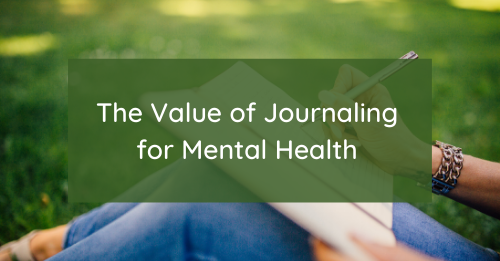Journaling is the practice of writing to explore the thoughts and feelings surrounding the events of each day. Sadly, many people think that journaling is only for teenagers, primarily young girls. This attitude keeps adults from discovering the incredible mental health benefits of journaling. Learn how this self-exploration tool can help you, especially if you’re on the road to Recovery from addiction.
7 Benefits of Journaling for Anxiety, Depression and Overall Mental Health
Writing things out helps you process and explore your thoughts and feelings, even those that are subconscious. The ability to hash things out through the written word has many mental health benefits:
- Encouraging self-knowledge: Writing gives you valuable insight into yourself.
- Promoting problem-solving: As you write a problem down, you can also come up with potential solutions.
- Acting as a mood booster: Getting out your feelings, whether they’re positive or negative, can improve your mood and give you a greater sense of peace and happiness.
- Confronting trauma: Journaling about traumatic events helps you fully explore and release the emotions involved.
- Deterring negative thinking: As you journal the good, the bad and the ugly, you’ll find a reduction in the number of intrusive thoughts you experience.
- Encouraging growth: From setting goals to dreaming of the future, journaling allows you to write about the areas of your life where you would like to see growth or change.
- Fostering gratitude: Writing can encourage you to focus on people, things and events that have given you joy or that you appreciate.
Effective Journaling Techniques for Mental Health
Effective, consistent journaling can result in many improvements to your thoughts and emotions. Here are three of the most common journaling techniques that many people practice and incorporate into their daily schedule. Try them out to see which benefits your overall mental health the most.
- Gratitude journaling: List three or more aspects of your day for which you are grateful. This practice allows you to focus on the good in your life. It’s also useful as a record. You can go back and read about all the nice things that have happened to you whenever you’re feeling down.
- Emotional release journaling: Write your emotional response to any events that have happened during your day. This technique helps you process your feelings, expand on positives and manage the negative things that may have occurred.
- Bullet journaling: Write to unclutter your mind. This type of journaling allows you to keep track of things you need to do, goals, memories and other information you don’t want to forget. The act of unloading your thoughts can bring incredible stress relief.
Learn Other Valuable Mental Health Skills at 7 Summit Pathways
Now more than ever, we understand the importance that good mental health plays in keeping addictive behaviors at bay. If your struggle with addiction, you are not alone. The team at 7 Summit Pathways wants to be part of your healing journey. Your personalized treatment plan will include evidence-based therapies and may consist of therapeutic tools like journaling to help you process your thoughts and feelings. The goal is holistic healing to ensure a brighter tomorrow.
Contact us today to discuss our treatment options.
